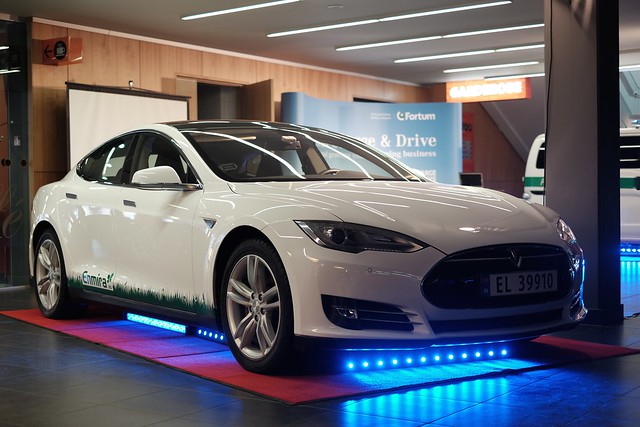On Vox Borders this week, I couldn’t help but think of a quote from Scarface,”Don’t get high on your own supply.”
Journalist Johnny Harris described Norway as “full of Teslas”. While he doesn’t know much about the popular electric plug in, “0-60 in like… 5 seconds”, he does bring up an interesting observation about environmental and economic policies working together to affect change. In 2014, Tesla broke a record for number of cars sold in a month for a single model, of any kind of car, not just electric cars. In America, we’ve all seen the occasional electric vehicle, but in Norway, other Scandinavian countries, and Iceland, electric vehicles are becoming omnipresent on all city streets. This is partly due to forward thinking politicians, and their fortunate access to renewable resources to generate electricity, like geothermal generation. This renewable electricity makes electric vehicles much more beneficial over internal combustion cars, so it makes more sense to go all-in on a plug-in transportation future.
In 2016 in the United States of all the new cars that were purchased about 1% were electric, more like 0.9%. In Norway it was 29% and that trend is only speeding up: in January this year[2017] the share was like 37% or something of all the cars purchased being electric.
Many countries are adopting policies that make it cheaper for someone to buy a Tesla or any other electric car than to buy one in the United States. In Norway, you get free parking if you drive an electric car, you get access to the HOV Lane, which has way less traffic, you don’t have to pay registration fees, you get tax deductions on your income tax, and perhaps the biggest incentive of all is on the business side: companies like Tesla don’t have to pay sales tax for selling in Norway.
Furthermore, you don’t have to pay for gas to drive an electric car in Norway, and you don’t even have to pay for electricity because that is on the house. It’s all payed for by the sovereign wealth fund, which is comprised almost entirely of oil and gas money. Norway’s a huge producer of fossil fuels and they sell that to other countries.
While some might disparage Norway for funding their sustainable, clean future with dirty money, when you look at the situation objectively, they are still reducing their carbon footprint and fueling their own economic good compared to a business as usual approach. Using profits from older fossil fuel resources to improve the environment and wellbeing of their citizens is possibly the most beneficial way to spend tax dollars in the long and short term.
An most Norwegians are simply unapologetic for this caveat of their economy. And why should they be? If somebody else will pay their oil and natural gas, the Norwegian economy is much obliged to take their dollars, bitcoins, or yen and invest it in their transportation projects. If it worked for Tony Montana, it works for Norway (I don’t remember the full plot to Scarface).



